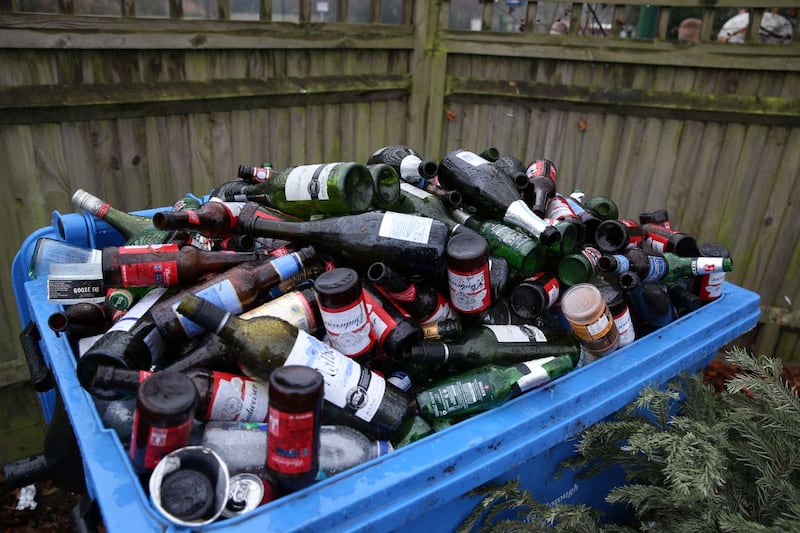More plastic waste than ever before could end up in landfill, incinerated or exported because of delays and a lack of clarity on Government waste reforms, MPs have said.
The Department for Environment, Food and Rural Affairs (Defra) wants businesses to produce less plastic and people to recycle more of it, with a target to recycle 65% of municipal waste by 2035, which includes other materials such as paper and glass as well as plastic.
Current recycling rates have sat just below 45% for several years and the Government recently announced a ban on single-use items in an effort to get this figure higher.
It also has a deposit return scheme planned for 2025 where consumers will get money back for recycling plastic bottles, though the plan has been heavily criticised for its delays and for not including glass.
The Public Accounts Committee (PAC) has published a report in which MPs said there has been very little progress since the Government published its circular economy plan in 2018.
Reforms on collection and packaging are yet to be implemented and, when they are, councils and businesses will not be able to make the necessary investments without further clarification from the Government on what shape the reforms will take, the committee said.
Defra has not published any requirements relating to a simpler recycling consultation that closed two years ago and has delayed implementing the first step of its reforms programme until 2025 because of “weaknesses” in the department, MPs said.
Dame Meg Hillier, chair of the committee, said: “Changing how we deal with waste is crucial to save the environment from further damage and meet the legally-binding target of net zero emissions by 2050.
“To meet its targets, it’s vital that the Government encourages a circular economy where products can be used again or for longer.
“Without a clearly communicated vision from Government on how these crucial reforms will actually work in practice, it’s unlikely that these targets are reachable.”

She added that Defra lacks a clear plan on how to realise its ambitions, meaning consumers, businesses and local councils are not able to prepare for the changes and are “crying out for information”.
The committee wants Defra to improve the way it runs programmes in future to avoid similar delays and set a date for when it will say how much extra businesses will have to pay to produce packaging and how the changes will impact local authority funding.
It also said Defra should explain how it expects to meet its 65% target given its simpler recycling programme is expected to achieve 62% at best.
A Defra spokesperson said: “Significant progress has been made on the delivery of our reforms to reduce waste and improve our use of resources.
“We are working with the supply chain to strengthen relationships and ensure they are kept informed and involved.
“We are delivering on our commitments. In October we set out a new, simpler, common-sense approach to recycling, meaning that people across England will be able to recycle the same materials alongside proposals for a weekly food waste.”








